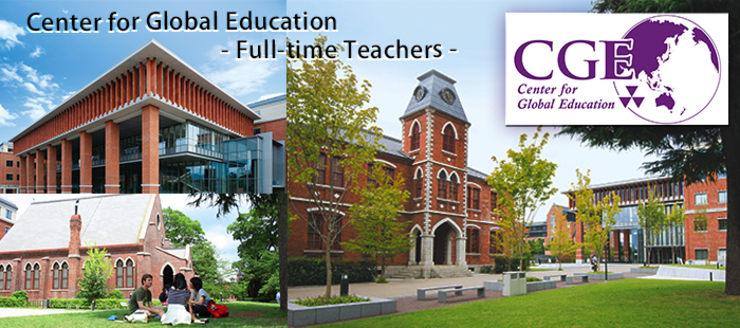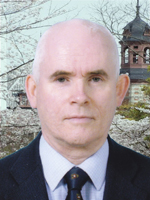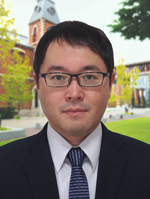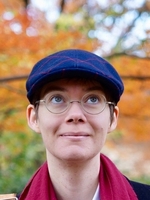Center for Global Education [Full-time teachers]

Full-time Teachers
Professor and Chair (Academic Affairs) Robert William ASPINALL

Research Topic
The Political and Educational Systems of Japan and the UK
Message
I am originally from Manchester, England. I hold a doctorate in politics from the University of Oxford, as well as a master’s degree in politics from the University of Manchester and a master’s degree in Japanese Studies from Essex University, UK.
I also have a joint honours degree in Modern History and Politics from Reading University and Postgraduate Certificate in Education in History from Kingston University, London.
I have a long experience teaching classes and seminars in Japanese politics, the Japanese education system and inter-cultural communication. Before coming to Doshisha I taught at Nagoya University and Shiga University, Japan.
I carry out research into the politics of education in Japan and the UK.
One of the projects I am currently engaged in is a comparative study of secondary education in Japan and England. This is an area where I am able to make use of my experience as a secondary school classroom teacher in both countries as well as my academic training in social science methodology and theory. I am also carrying out research into international education policy at the secondary and tertiary levels.
Professor Ken ARII

Research Topic
Ecology, Environmental Modeling, the Satoyama System
Message
Finding out that you have a common friend with a person whom you have just met, such an episode may make you aware that the world is small.
Perhaps you have come across the idea of “six degrees of separation”. In the late 1960s, an American social scientist Stanley Milgram conducted an experiment that would give rise to the concept that any two random people on this planet can be connected through a chain of acquaintances that has no more than five intermediaries. Milgram’s experiment was conducted in the U.S. and therefore its conclusion should not be expanded to the connectedness of people in the world, however, rapid developments in science and technology since the 1960s (e.g., internet, transportation) has indeed made the world a smaller place.
As you further your career in this “smaller world”, you are bound to encounter a great diversity of people with variety of ideas and opinions. Value your immediate surroundings, but reach out to this vast but connected world. Broaden your knowledge and experience, and prepare yourselves for the exciting future that awaits you!
Associate Professor Anya BENSON

Research Topic
Contemporary Japanese media and children's media cultures
Message
It’s not uncommon for people to express shock or even fear upon encountering a different culture. But the vast majority of intercultural encounters elicit no reaction, for they are simply the shape of our everyday lives. We encounter other cultures every time we speak to our friends, scroll through the news, pass by a Starbucks or go to the cinema.
Our lives are steeped in the perspectives of those we never thought to include in our imaginings. We can’t choose to avoid intercultural encounters, but we can choose the opposite: to learn to see and admire the diversity that colours even the most mundane of activities.
I research children’s media franchises and their constructions of space. Through this I have learnt that recognition of the unfamiliar can be a tool used to construct something new. Our desire to seek out the spaces of fancy is what media franchises rely on to build themed shops and parks for commercial purposes. But it is also one way we all learn: by imagining something unfamiliar, and then seeking out — or better yet, building — the environment in which it can be encountered.